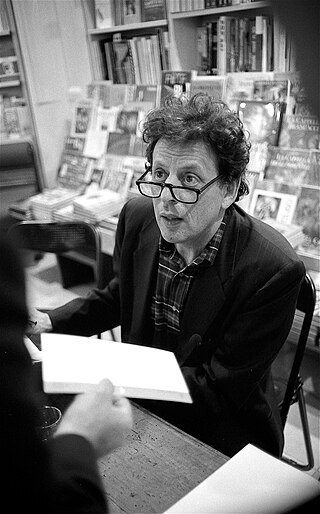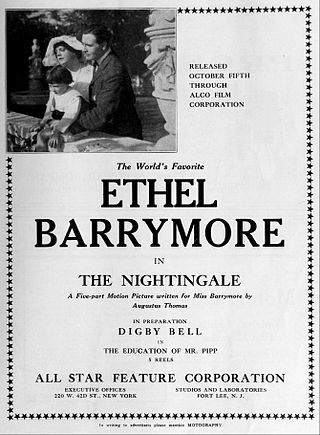Related Research Articles
A tenor is a type of classical male singing voice whose vocal range lies between the countertenor and baritone voice types. It is the highest male chest voice type. Composers typically write music for this voice in the range from the second B below middle C to the G above middle C (i.e. B2 to G4) in choral music, and from the second B flat below middle C to the C above middle C (B♭2 to C5) in operatic music, but the range can extend at either end. Subtypes of tenor include the leggero tenor, lyric tenor, spinto tenor, dramatic tenor, heldentenor, and tenor buffo or spieltenor.
A baritone is a type of classical male singing voice whose vocal range lies between the bass and the tenor voice-types. The term originates from the Greek βαρύτονος (barýtonos), meaning "heavy sounding". Composers typically write music for this voice in the range from the second F below middle C to the F above middle C (i.e. F2–F4) in choral music, and from the second G below middle C to the G above middle C (G2 to G4) in operatic music, but the range can extend at either end. Subtypes of baritone include the baryton-Martin baritone (light baritone), lyric baritone, Kavalierbariton, Verdi baritone, dramatic baritone, baryton-noble baritone, and the bass-baritone.
A contralto is a type of classical singing voice whose vocal range is below that of the mezzo-soprano.

Sheldon Mayer Harnick was an American lyricist and songwriter best known for his collaborations with composer Jerry Bock on musicals such as Fiorello!, She Loves Me, and Fiddler on the Roof.
The German Fach system is a method of classifying singers, primarily opera singers, according to the range, weight, and color of their voices. It is used worldwide, but primarily in Europe, especially in German-speaking countries and by repertory opera houses.

Hydrogen Jukebox is a 1990 chamber opera featuring the music of Philip Glass and the work of beat poet Allen Ginsberg. Its name is taken from a phrase coined by Ginsberg, from his 1955 poem Howl.
Hugh the Drover is an opera in two acts by Ralph Vaughan Williams to an original English libretto by Harold Child. The work has set numbers with recitatives. It has been described as a modern example of a ballad opera. Contemporary comment noted the use of humour and the role of the chorus in the work, in the context of developing English opera.

Susannah is an opera in two acts by the American composer Carlisle Floyd, who wrote the libretto and music while a member of the piano faculty at Florida State University. Floyd adapted the story from the Apocryphal tale of Susannah and the Elders, though the latter story has a more positive ending. The story focuses on 18-year-old Susannah Polk, an innocent girl who is targeted as a sinner in the small mountain town of New Hope Valley, in the Southern American state of Tennessee.
Jack Hamilton Beeson was an American composer. He was known particularly for his operas, the best known of which are Lizzie Borden, Hello Out There!, and The Sweet Bye and Bye.
The "Duetto buffo di due gatti" is a performance piece for two sopranos and piano. Often performed as a comical concert encore, it consists entirely of the repeated word miau ("meow") sung by the singers. It is sometimes performed by a soprano and a tenor, or a soprano and a bass.
Facing Goya (2000) is an opera in four acts by Michael Nyman on a libretto by Victoria Hardie. It is an expansion of their one-act opera called Vital Statistics from 1987, dealing with such subjects as physiognomy, eugenics, and its practitioners, and also incorporates a musical motif from Nyman's art song, "The Kiss", inspired by a Paul Richards painting. Nyman also considers the work thematically tied to his other works, The Man Who Mistook His Wife for a Hat, The Ogre, and Gattaca, though he does not quote any of these musically, save a very brief passage of the latter. It was premièred at the Auditorio de Galicia, Santiago de Compostela, Spain on 3 August 2000. The revision with the cast heard on the album premiered at the Badisches Staatstheater Karlsruhe, Germany, on October 19, 2002. Vital Statistics has been withdrawn. The Santiago version included more material from Vital Statistics. The opera was most recently performed at the 2014 Spoleto Festival USA, located in Charleston, South Carolina.
Jinks may refer to:
A voice type is a group of voices with similar vocal ranges, capable of singing in a similar tessitura, and with similar vocal transition points (passaggi). Voice classification is most strongly associated with European classical music, though it, and the terms it utilizes, are used in other styles of music as well.

William Redworth Needham (1837–1927), better known by the stage name of William Horace Lingard, was a 19th century English comic singer and actor.
There is no authoritative system of voice classification in non-classical music as classical terms are used to describe not merely various vocal ranges, but specific vocal timbres unique to each range. These timbres are produced by classical training techniques with which most popular singers are not intimately familiar, and which even those that are do not universally employ them.
A bass is a type of classical male singing voice and has the lowest vocal range of all voice types. According to The New Grove Dictionary of Opera, a bass is typically classified as having a vocal range extending from around the second E below middle C to the E above middle C (i.e., E2–E4). Its tessitura, or comfortable range, is normally defined by the outermost lines of the bass clef. Categories of bass voices vary according to national style and classification system.
The Golden Ticket is an opera based on Roald Dahl's classic 1964 book Charlie and the Chocolate Factory by the contemporary American composer Peter Ash, with a libretto by Donald Sturrock. The Golden Ticket was commissioned by American Lyric Theater, Lawrence Edelson, Producing Artistic Director; and Felicity Dahl. It premiered at Opera Theatre of Saint Louis on June 13, 2010 in a co-production between OTSL, Ireland's Wexford Festival Opera, and American Lyric Theater.

The Nightingale, drama film directed and written by Augustus Thomas in 1914, is a silent drama film, which Alco Film Corporation released. Ethel Barrymore makes her acting debut in this feature film, which Thomas wrote specifically for her. Thomas, famed as a Broadway playwright, was the best friend of Barrymore's father Maurice and had known the actress since she was a child. As with many of Barrymore's films to come, the advertising for this film says the film is told in 'acts' as with a stage play, an effort to remind the audience of the star's status and preference for the legitimate stage. This film was long thought to be lost.
Captain Jinks of the Horse Marines is a lost 1916 silent film directed by Fred E. Wright and starring Ann Murdock. It is based on the 1901 play of the same name by Clyde Fitch which starred Ethel Barrymore. It was produced by the Essanay Studios in Chicago.
References
- ↑ "Jack Beeson - Captain Jinks of the Horse Marines - Opera". boosey.com. Retrieved 24 February 2015.
- ↑ CD Liner Notes, Captain Jinks of the Horse Marines: A Romantic Comedy in Music, Music by Jack Beeson, Libretto by Sheldon Harnick, Based on the Play by Clyde Fitch, (p) 1976 Sony Music Entertainment, Under license from The Sony Music Custom Marketing Group, a division of Sony Music Entertainment, (c) 2010 Albany Records. Catalog no.: TROY1149-50.